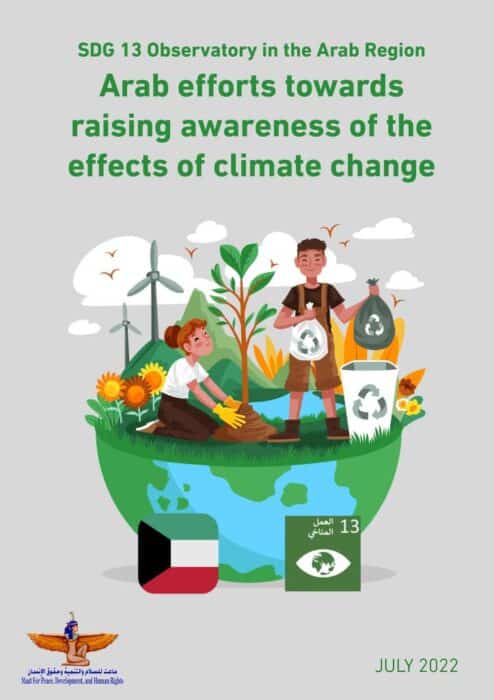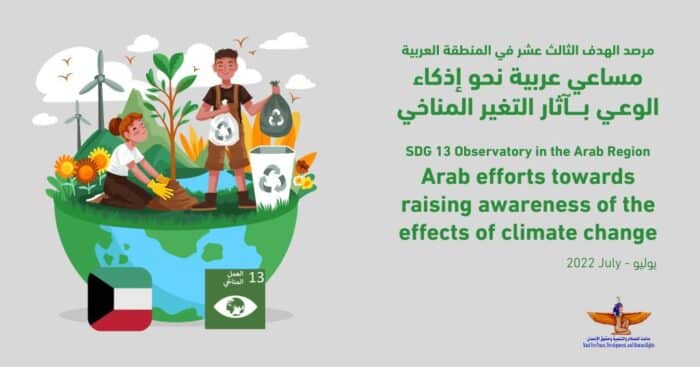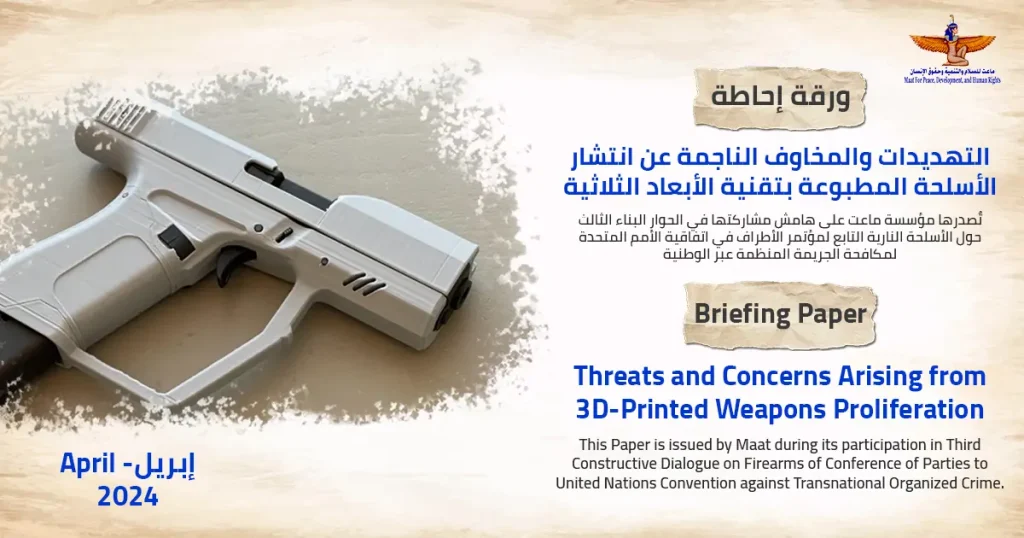Okeil: We call on the Arab countries to cooperate with the UN mechanisms to protect indigenous peoples from the effects of climate change
Mariam Salah: Joint efforts must be intensified to launch more environmental awareness campaigns, especially in conflict areas
As part of its endeavors to promote sustainable societies that protect human life in an effective and sustainable manner, Maat for Peace, Development and Human Rights released the 7th issue of the SDG 13 Observatory in the Arab Region, July 2022, under the title "Arab Efforts towards Raising the Awareness of the Effects of Climate Change".
In July’s issue, the Observatory emphasized the close relationship between climate change and violence against women and girls from a human rights perspective. It is estimated that 80 percent of people displaced by climate change are women, according to UN Environment. When women are displaced, they are at greater risk of violence, including sexual violence in shelters, tents or camps. As migrants or refugees, women face a tragic reality.
The Observatory highlighted the key responsibility that individuals and society shall undertake to help mitigate and overcome the challenge of the climate challenge, which requires integration of both collective and individual action. Therefore, Arab governments seek to conduct workshops and training programs for all individuals in different sectors to raise awareness of the destructive behaviors the people continue to practice heedless of the consequences and to encourage them to adopt more sustainable and effective measures that would help curb the exacerbating phenomenon of climate change.
Kuwait was the country focus of the 7th issue of the Observatory. Although the State of Kuwait does not have a strategy for combating climate change so far, it launched a national strategy that seeks to phase out the production and import of ozone-depleting substances, looked for diversifying energy sources, and also paid attention to increasing natural reserves to reach 15% of the total area of the country, in addition to its concerted efforts to enhance greenery along its coastline by growing Mangroves to store and sequester carbon.
Commenting on this, Ayman Okeil, a human rights expert and President of Maat, stressed the huge undeniable impact of climate change on all people in general, and indigenous peoples and women, in particular, who are the most vulnerable to the risks of climate change. In light of this fact, Okeil recommended the engagement of these vulnerable groups in United Nations meetings and the decision-making processes. Okeil also commended the efforts of the international mechanisms for promoting climate action, and called on the League of Arab States to cooperate with these mechanisms and to develop joint plans with the purpose of protecting indigenous peoples and women from the negative repercussions of climate change.
For her part, Mariam Salah, a researcher at the Sustainable Development Unit at Maat, noted the importance and effectiveness of media awareness campaigns aimed at mitigating the phenomenon of climate change and adapting thereto by changing human behavior, and recommended all relevant media institutions and civil society organizations to work together to launch more awareness campaigns and conduct various eye-opening workshops and training programs. Salah also called for activating the role of these awareness campaigns in Arab conflict areas in particular, where people believe that climate change advocacy and awareness is welfare if compared to other crises such as wars.

 |
 |











